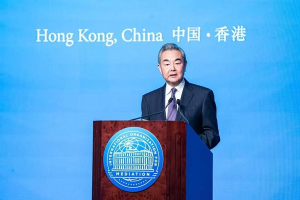
In a significant shift toward self-reliance, Ethiopia has introduced Ethio-Aid, a national disaster response program designed to mobilize domestic resources in times of crisis. Announced amid a decline in international assistance—particularly following USAID’s suspension of humanitarian aid—this new framework represents far more than a humanitarian gesture. It signals a bold reconfiguration of Ethiopia’s strategy for enhancing its hard power on both domestic and regional fronts.
At its core, Ethio-Aid is about building resilience. With 3% of the national budget earmarked annually for disaster response—equivalent to approximately 45 billion birr—it is a massive investment in national capacity. Unlike past models that depended heavily on external support, Ethio-Aid seeks to institutionalize a response system rooted in domestic commitment and operational readiness. Citizens, institutions, and organizations alike—public and private—will contribute, either voluntarily or mandatorily.
This is not just about responding to disasters. It’s about sending a message: Ethiopia is ready to stand on its own.
Hard power through internal mobilization
Traditionally, hard power has referred to military might or economic coercion. While Ethio-Aid may not involve tanks or troops, it represents an assertive form of state capacity—one built on the ability to respond decisively and autonomously to crises. In doing so, Ethiopia strengthens its sovereignty and weakens the hand of foreign influence.
The suspension of USAID aid in 2023, due to concerns about aid diversion, left millions of Ethiopians in limbo. The episode underscored a hard truth: external aid, while crucial, is never guaranteed. Ethio-Aid responds to that truth with a long-term strategy to ensure Ethiopians are never again so vulnerable to shifts in foreign policy.
By building a permanent, well-resourced disaster institution, the country insulates itself from geopolitical dependency. In times of drought, conflict, or disease, Ethiopia will no longer need to wait for the global community to act. It can act first, act fast, and act independently.
Outward-looking strength
What sets Ethio-Aid apart is its outward-looking ambition. The government has pledged support not only for domestic crises but also for neighboring countries facing hardship.
In a region plagued by drought, conflict, and displacement—think Somalia, South Sudan, or Sudan—this positions Ethiopia as a stabilizing force.
Hard power isn’t just about coercion; it’s about capacity. By extending a hand to its neighbors, Ethiopia could bolster its geopolitical clout, transforming from a recipient of aid to a provider of solutions. Imagine Ethiopian disaster teams deploying across borders, backed by a domestically funded system—a potent symbol of sovereignty and strength.
Historically, Ethiopia’s hard power has been tied to its military prowess and strategic location. Ethio-Aid adds a new dimension: economic autonomy as a force multiplier. By reducing dependence on fickle foreign aid, Ethiopia insulates itself from external leverage—a lesson learned from USAID’s exit. A self-reliant disaster response system enhances national security too; a country that can feed its people and rebuild after calamity is less vulnerable to internal unrest or foreign exploitation.
Execution will be the key
Of course, ambition alone won’t carry the day. As Ethio-Aid awaits legislative approval and operational rollout in the next fiscal year, its success hinges on execution. The government must prioritize efficiency, transparency, and public trust. Without these, Ethio-Aid risks becoming a hollow slogan—a symbolic gesture with no teeth.
Implementation must be guided by accountability frameworks and real-time data systems. Regular audits, independent oversight, and citizen engagement will be crucial in ensuring the fund is not only well-intentioned but also well-managed.
But if Ethio-Aid succeeds—if it becomes the well-oiled engine of national and regional response—it could herald a new era in Ethiopian statecraft: one where Ethiopia’s hard power is not borrowed from others but forged from within; one where national pride is backed by practical capacity; one where sovereignty means the ability to respond, recover, and rise.
In a world where crises are increasingly the norm, Ethio-Aid offers a compelling model for nations seeking strength through self-sufficiency. It reminds us that power is not only in arms or alliances—but in the ability to take care of one’s own, and in time, others. That’s a legacy worth pursuing.
The author Seid Mehammed has held his master’s degree in Intercultural Communication and Public Diplomacy from Jimma University. He has been working as a journalist at Ethiopian Press Agency and later as lecturer of Public Diplomacy at Wolaita Sodo University. He can be reached via email seidmehammed883@gmail.com
BY SEID MEHAMMED
THE ETHIOPIAN HERALD FRIDAY 11 APRIL 2025




